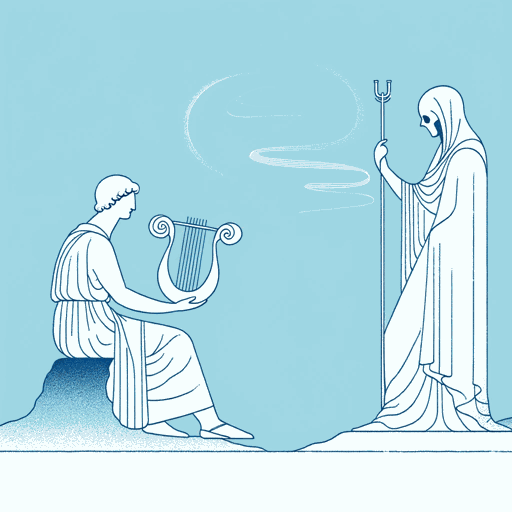38 pages • 1 hour read
EuripidesCyclops
Fiction | Play | Adult | Published in 422A modern alternative to SparkNotes and CliffsNotes, SuperSummary offers high-quality Study Guides with detailed chapter summaries and analysis of major themes, characters, and more.
Themes
The Uses of Language
Language and its uses is a prominent theme in many of the works of Euripides, who was known even in antiquity for his keen interest in rhetoric and sophistry. The ways characters in Cyclops—Odysseus, Silenus, and Polyphemus—use language over the course of the play contributes to their characterizations and comments on the role of communication in society more broadly.
Odysseus, as in other works of Greek literature, is a trickster figure noted for his cunning. He holds off on revealing his identity until the very end, showing that he is calculating and able to anticipate dangers that may arise from being too forthcoming (though the purpose of his concealing his name in the Odyssey is ultimately lost in Euripides’s adaptation of the story). He shows himself as rhetorically adept in his agon (debate scene) with the Cyclops, though his carefully crafted arguments about piety and virtue are doomed to fall flat with the impious and uncivilized Cyclops. This misjudgment of his audience is part of the play’s mockery of the elevated genre from which Odysseus hails—the juxtaposition of 







Related Titles
By Euripides

Alcestis
Euripides

Electra
Euripides

Hecuba
Euripides

Helen
Euripides

Heracles
Euripides

Hippolytus
Euripides

Ion
Ed. John C. Gilbert, Euripides

Iphigenia in Aulis
Euripides

Medea
Euripides

Orestes
Euripides

The Bacchae
Euripides

Trojan Women
Euripides
